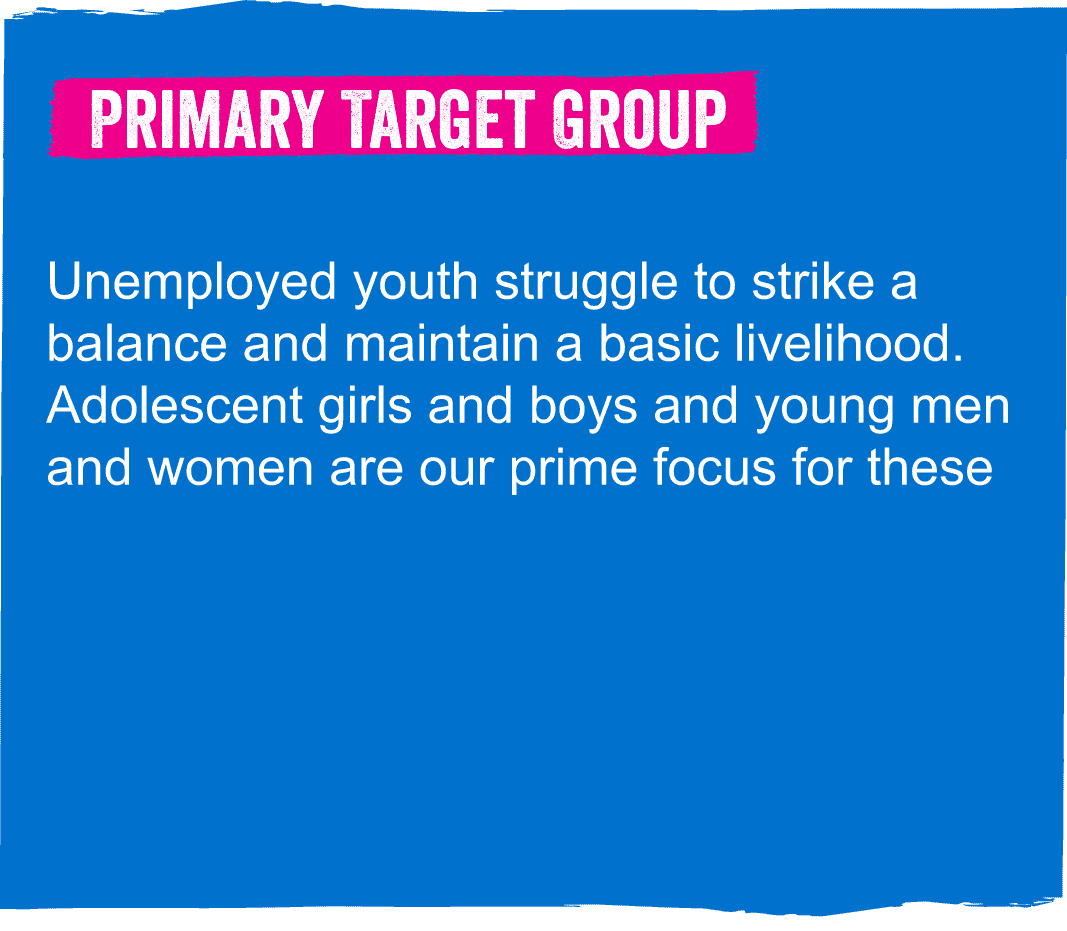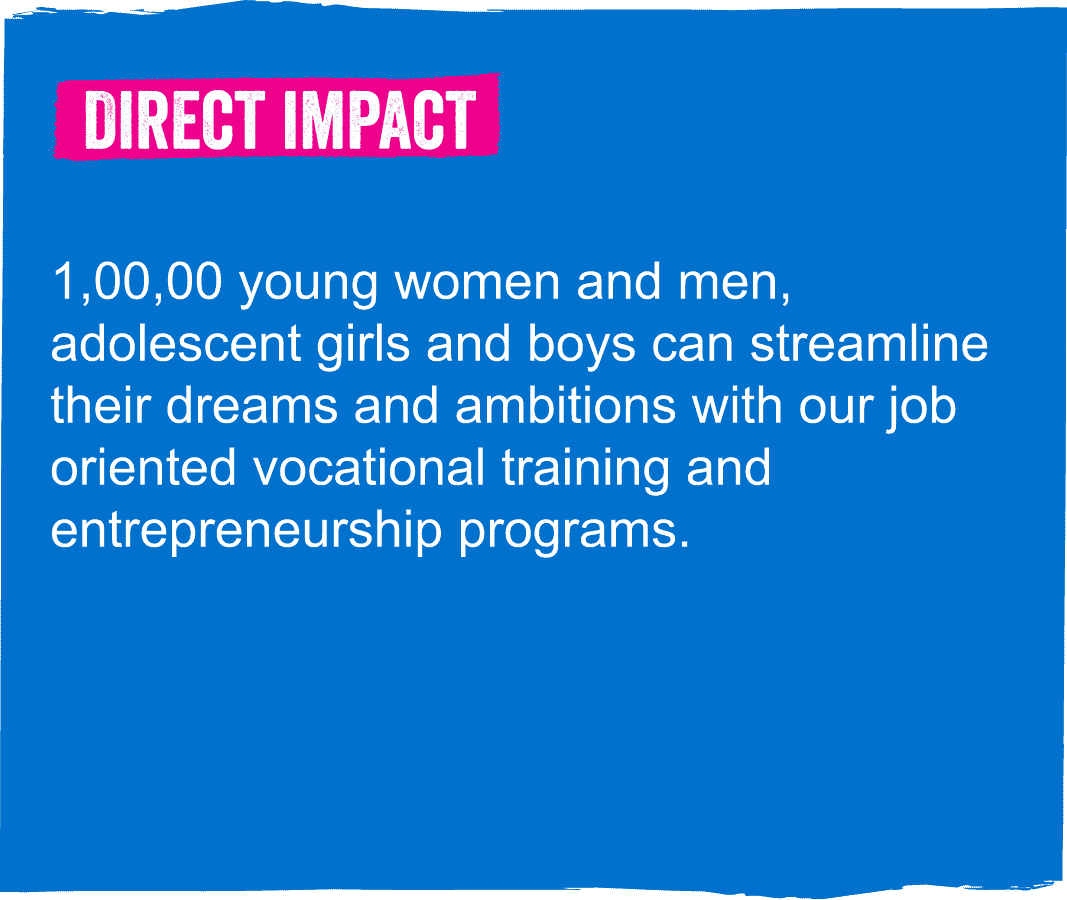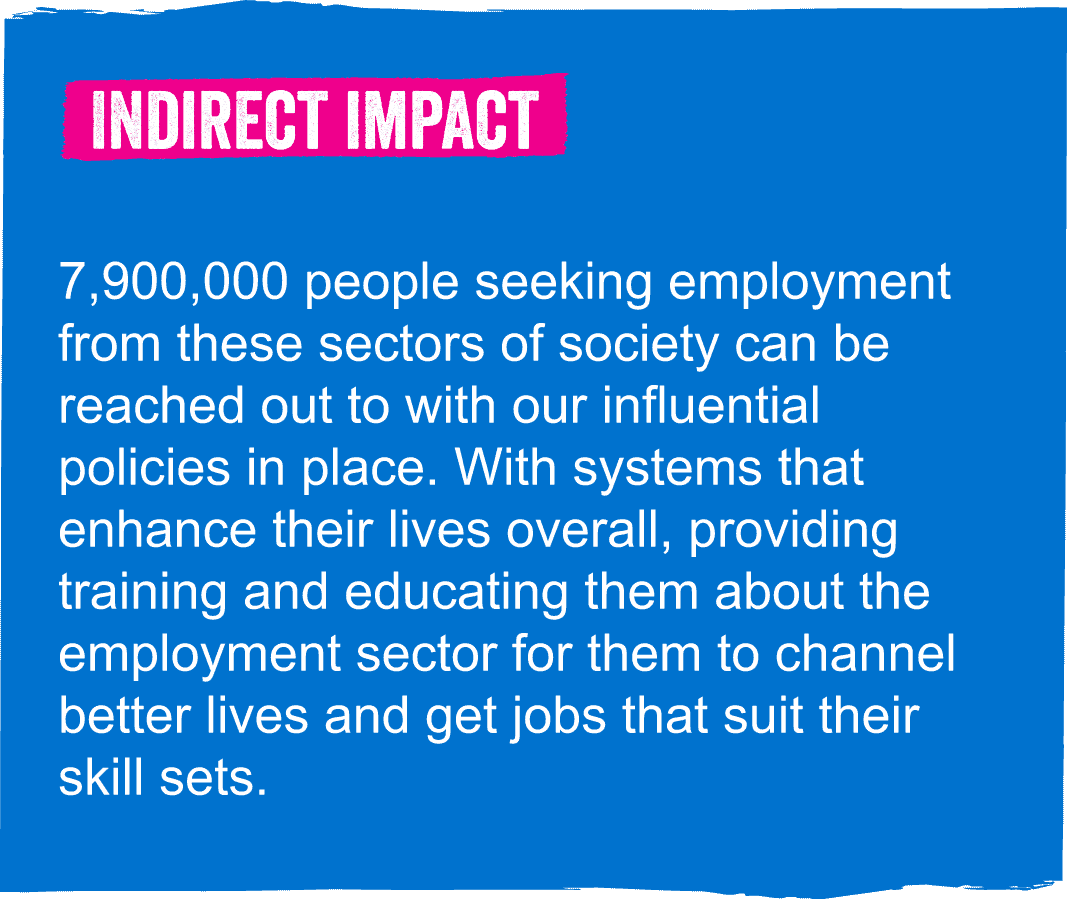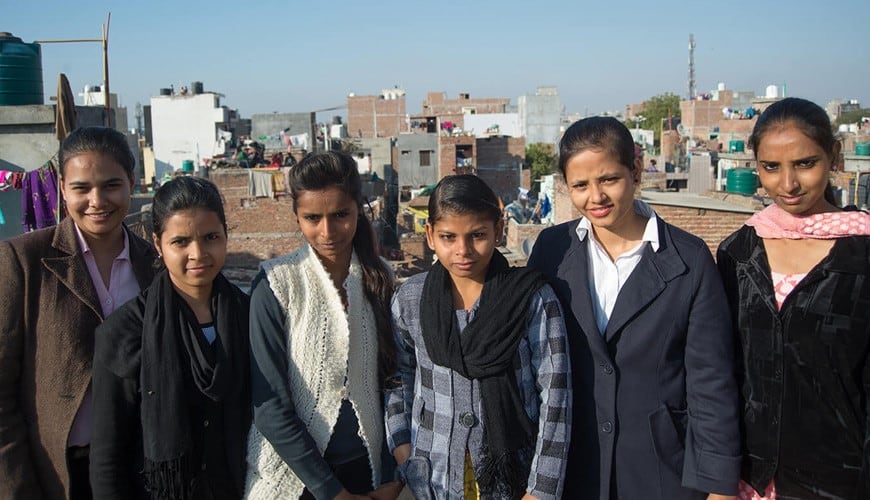In yet another corner, girls engage in a lively debate about which strategies are best to convince their families to let them work, an opportunity often denied by the girls’ protective environment.
Saksham started in 2010, by focusing on ‘Neither in Education, Employment or Training (NEET)’ youth, especially girls, from urban and disadvantaged areas. The initiative arms them with free, market-oriented vocational skills, as well as job and entrepreneurial training. With support from corporates and Plan India offices, Plan India’s mission is to provide access to gainful employment to young girls in the age group of 18-29 years while also grooming today’s youth as representatives of a gender-just society. The program also goes several steps further and includes basic IT skills, presentation, etiquette, and business communication skills. Saksham has a strong focus on training that challenges gender stereotypes and widespread discrimination. Saksham engages parents, communities, and employers on gender equality, equal opportunities, and economic empowerment of girls and women. In addition to skill development, it encourages young girls and women to participate in socio-economic development.
Saksham was carefully designed after gathering market intelligence, researching available jobs, and identifying the skill gap. Initial market studies identified potential trades for vocational training. Local employers in these sectors were then interviewed to gather skill requirements and gaps, which formed the basis of the training courses. Creating awareness among young people about job opportunities in the market, providing career counseling, and imparting skills to negotiate with families, communities, and employers were also designed into the course.
Plan India takes the training right into the communities to address the challenges raised by limited mobility for girls. Working closely with their training and implementation partners, Plan India leverages the trust they have built over the years with communities to lower resistance to the girls seeking employment and bring about behavioral change from within the communities.
Saksham provides experiential learning before placing its young graduates into job openings and mentors them through the first six months to ensure no dropout. This project ensures gender mainstreaming by doing a risk assessment and designing a strategy to mitigate the risk in terms of timing, location in the training center, and employment location.
The success of Saksham lies in creating an informed and empowered youth force that seeks to create an equitable, economically secure, and sustainable future for themselves and their families. Girls who graduate from Saksham leave with skills for not just gainful employment, but with an ability to make decisions and negotiate their rights with peers, parents, and employers. The hard work of the Saksham team is validated by the strong and constant demand for Saksham-trained young women from local employers.







 School and Community based career counseling
School and Community based career counseling



